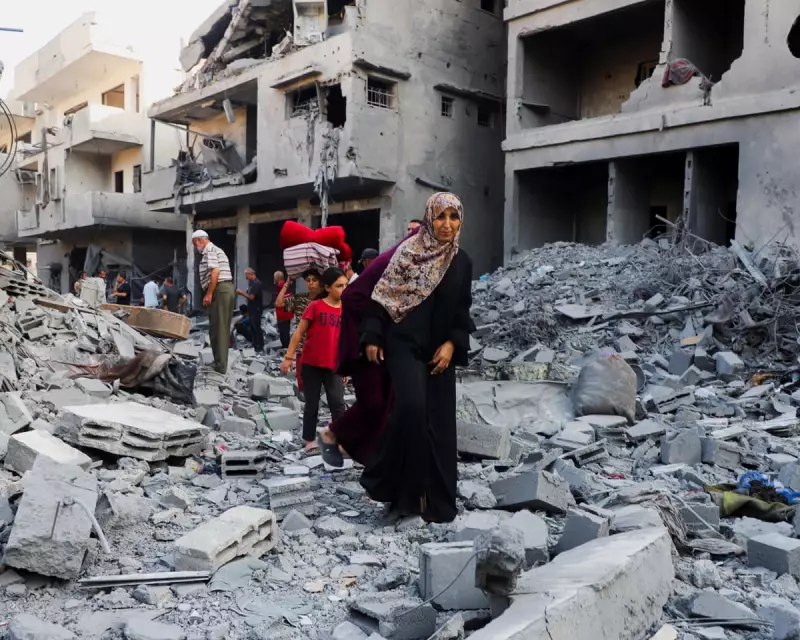
A landmark United Nations investigation has delivered a seismic legal verdict, concluding that Israel has committed acts of genocide during its military offensive in the Gaza Strip. The exhaustive report from the UN's Independent International Commission of Inquiry on the Occupied Palestinian Territory presents a forensic, legal analysis that moves beyond rhetoric to a formal accusation under international law.
A Pattern of Conduct with Genocidal Intent
The Commission's findings are stark. The report meticulously details a pattern of conduct that it argues demonstrates a "genocidal character" in Israel's military campaign. This is not based on a single incident but on a comprehensive review of public statements by senior Israeli officials, combined with the devastating impact of military operations on the Palestinian population.
The evidence, according to the Commission, shows "reasonable grounds to believe" that the threshold for the crime of genocide has been met. This represents one of the most serious charges that can be levelled against a state under international law.
Three Key Findings of the Report
The legal analysis rests on three core pillars, establishing the necessary intent and action as defined by the 1948 Genocide Convention:
- Killing Palestinians in Large Numbers: The report highlights the staggering death toll, particularly the high number of women and children killed, as indicative of a policy to destroy a substantial part of the Palestinian group in Gaza.
- Causing Serious Bodily or Mental Harm: Widespread injuries, the psychological trauma of constant bombardment, and the collapse of the healthcare system are cited as causing profound and lasting harm to the population.
- Deliberately Inflicting Conditions to Bring About Physical Destruction: The Commission points to the siege on Gaza, which has severely restricted access to food, clean water, fuel, and medicine, creating a man-made humanitarian catastrophe intended to make life unsustainable.
Evidence of Intent: The Critical Element
Proving genocide requires evidence of specific intent (dolus specialis) to destroy, in whole or in part, a national, ethnical, racial or religious group. The report asserts it has found this intent in the dehumanising language used by high-ranking Israeli officials, including calls for a complete siege and the erasure of Gaza, which it argues provided the necessary permission structure for soldiers on the ground to commit atrocities.
International Repercussions and Legal Pathways
This report significantly increases the pressure on Israel and its allies. It provides a powerful evidence base for ongoing cases at the International Court of Justice (ICJ) and the International Criminal Court (ICC). While the report itself is not a judicial ruling, its authoritative legal weight is expected to influence international courts, foreign governments, and global public opinion, potentially paving the way for sanctions and further isolation.
The findings present a major challenge for Western nations that have staunchly defended Israel's right to self-defence, forcing a difficult re-evaluation of their diplomatic and military support in the face of a formal genocide accusation from a UN body.






